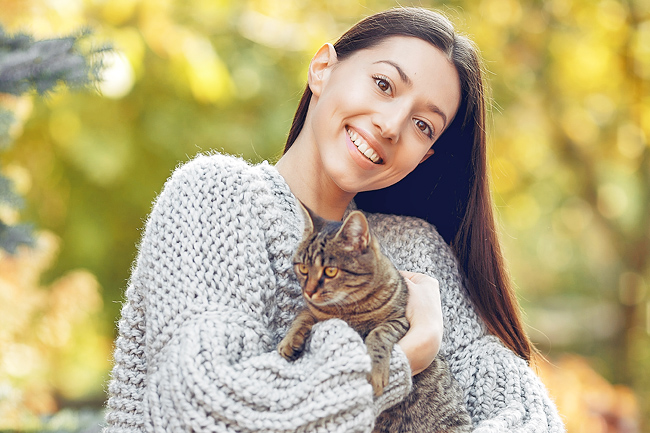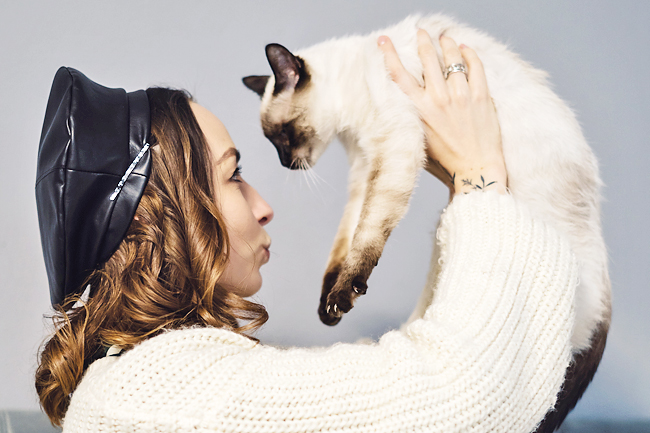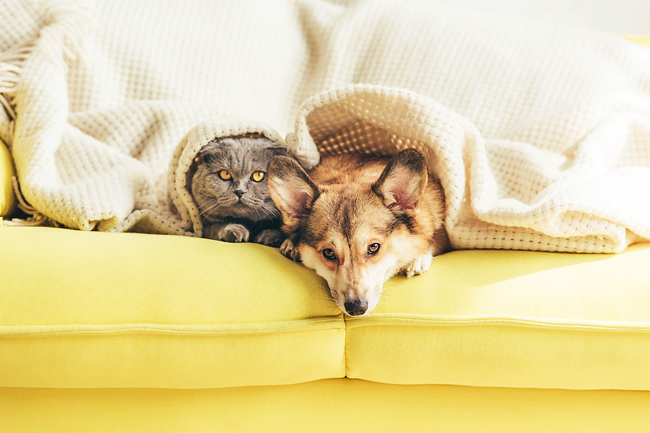AP – Owning a pet can be a roller coaster. There are the highs, like when your dog greets you with a full-body wiggle when you return home, or when your cat purrs loudly as you cuddle next to one another. Then there are the lows, like stressful trips to urgent care, waking up to that unpleasant vomiting noise, or making the difficult choice to say goodbye because of medical problems or even intractable behavioural issues.
For those pet owners who are struggling, it’s beneficial to their mental health to acknowledge that pets can create stress and that some animals are more work than others.
Research has shown that both cats and dogs can have equally positive impacts on mental health.
Pets may be helpful at reducing stress, anxiety and feelings of being overwhelmed, including in children. Pet ownership has also been shown to improve well-being by instilling people with a sense of purpose and responsibility.
As a licensed clinical social worker, animal lover and proud dog mom, I have both professionally and personally seen the mental health impacts of having animal companions.
Media stories commonly cover the positives of pet ownership. But the hardships and downsides of owning a pet are not discussed as often. For instance, while there are many positive aspects to pet ownership, some research is showing that pets may lead to exacerbated mental health concerns or even sleep issues.




Whether you’re adopting or shopping, pets can bring a full range of emotions into our lives.
Research has even shown that pets may benefit non-pet owners around them as well.
HOW PETS CAN ENRICH OUR LIVES
A pet owner may easily be able to tick off an infinite number of positive effects their fuzzy companion has had on their life. Research backs them up.
Pets can provide constant companionship for individuals and families. This is particularly true for older adults.
There was an uptick in adoptions of pets during the early days of the COVID-19 pandemic.
Many people benefited from pets during periods of stay-at-home mandates and quarantines.
Research shows that dogs can reduce loneliness in their owners. In fact, being accompanied by a dog may even make you seem more approachable.
Pets, especially dogs, may help improve one’s ability to socialise and feel connected with others, as well as increasing the prospects for social interactions. People may bond over the experience of having pets, socialise at the dog park, or even meet up at the local cat café.
Animals and pets have also been used to assist in detecting the onset symptoms of medical episodes, including seizures. Animal-assisted therapy and pet therapy have shown promise in improving symptom management and overall quality of life in a number of conditions, including trauma and stressor-related disorders, anxiety disorders, eating disorders, autism, traumatic brain injuries, neurological disorders and more.
THE INHERENT STRESSORS
Despite the many positive impacts of pet ownership, it also can have negative impacts. For example, one survey found that 47 per cent of Americans felt separation anxiety when leaving their dogs at home.
The survey also found that 41 per cent of pet owners declined social invitations because they did not want to leave their dog at home, and that 70 per cent of pet owners would prefer to work remotely so they could stay at home with their pet.
Pet owners have also identified feeling anxious about their pet getting sick or running away, or the risk that they might harm the animal unintentionally.
Stress from pet ownership is common. There’s the stress of house-training and making sure the pet is getting enough enrichment – both physically and mentally. Then there are the challenges associated with vet appointments and navigating illness, as well as financial stressors and finding pet sitters.
Another element of pet ownership that people often don’t talk about is the stress, and often shame, that owners with reactive dogs experience from walking their dog, having people over to the house or having their dog around children.
Finally, there’s the reality that our pet companions live shorter lives than we do, leading to end-of-life planning, expensive treatments for older-age ailments, and, of course, the grief that will be felt from the loss of a pet. For some people, the loss of a pet may feel worse than human loss.
People may judge or criticise pet owners for an “overblown” grief reaction. The common experience of invalidation and lack of acknowledgment related to grief around pet loss – similar to the grief felt from divorce and miscarriage – is categorised as disenfranchised grief.
This term refers to grief that is not acknowledged, validated or accepted socially. – Emily Hemendinger


